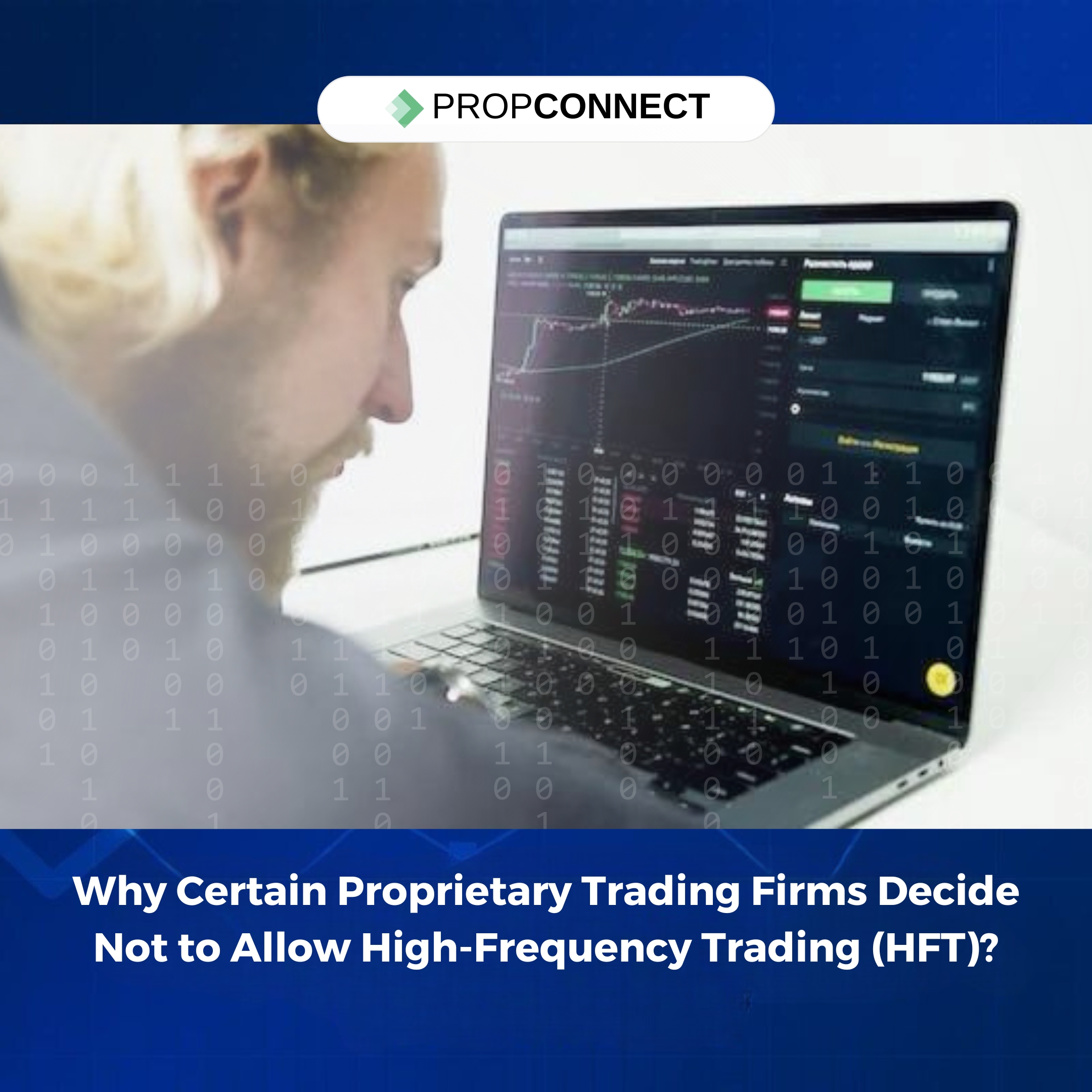Articles
Why Certain Proprietary Trading Firms Decide Not to Allow High-Frequency Trading (HFT)?
Prop trading companies may opt for tactics other than HFT to prevent aggravating future liquidity issues if they prefer trading settings with more consistent and predictable liquidity circumstances

In order to obtain an advantage in the fiercely competitive financial markets, proprietary trading firms, or prop firms, are at the forefront of implementing cutting-edge trading tactics. It is therefore significant that certain prop firms consciously decide against taking High-Frequency Trading (HFT). We explore the rationale behind this choice in this article, as well as the factors that influence some prop trading companies' decision to forgo HFT tactics.
Issues with Risk Management: High-frequency trading is defined by the ability to execute a lot of orders very quickly—often in a matter of milliseconds. For prop firms, the fast-paced nature of HFT can present risk management issues. The possibility of technological malfunctions, connectivity problems, or abrupt market shocks raises doubts about the efficacy of risk management and mitigation. Some prop firms choose not to deal with the complexity of HFT in favor of strict risk control.
Costs of technical infrastructure: Using HFT methods successfully necessitates a cutting-edge technical infrastructure that includes advanced algorithms, ultra-fast connectivity, and low-latency systems. Building and maintaining such infrastructure might come with significant setup and ongoing maintenance expenditures. HFT tactics may not be used by proprietary trading organizations because they lack the funds or the will to make significant investments in cutting-edge technology.
Regulatory Scrutiny and Compliance Challenges: In a number of jurisdictions, high-frequency trading has come under closer regulatory scrutiny. Regulators are worried about how quick trading can affect the fairness and stability of the market. Adapting to changing regulatory standards can be a difficult and resource-consuming procedure. Certain prop businesses might opt to steer clear of the regulatory obstacles linked to high-frequency trading (HFT) and instead concentrate on tactics that better mesh with current compliance standards.
Market Liquidity Issues: High-frequency trading makes use of tiny price differences and inefficiencies in the market. The race for these little advantages heats up as more businesses use HFT tactics. This may give rise to worries about how HFT may affect overall market liquidity. Prop trading companies may opt for tactics other than HFT to prevent aggravating future liquidity issues if they prefer trading settings with more consistent and predictable liquidity circumstances.
Long-Term Value vs. Short-Term Gain: Rather than depending solely on quick, transient price swings, some prop businesses take a longer view, giving priority to methods that are in line with basic market fundamentals. High-frequency trading (HFT) frequently entails large numbers of trades with short holding times, which may encourage an emphasis on quick profits. Proprietary trading companies that place a high priority on creating long-term value and stability in their portfolios may choose strategies that are more in line with this concept.
Market-Making vs. Proprietary Trading: While some prop firms carry out trading only for themselves, others function as market makers, supplying liquidity by enabling trades for outside customers. Prop businesses that only concentrate on proprietary trading may choose to avoid the dynamics and responsibilities connected to market-making and HFT, as HFT is frequently linked to market-making operations.
Conclusion: A variety of factors, including market liquidity concerns, regulatory obstacles, risk management considerations, and a preference for long-term value creation, influence some proprietary trading firms' decision to decline High-Frequency Trading. Prop firms need to evaluate their objectives, tolerance for risk, and available resources in order to choose the best trading methods. Even though HFT is still a significant and common force in the financial markets, the variety of prop trading options reflects the range of factors that influence how different organizations design their own strategies for negotiating the intricacies of contemporary trading conditions.


